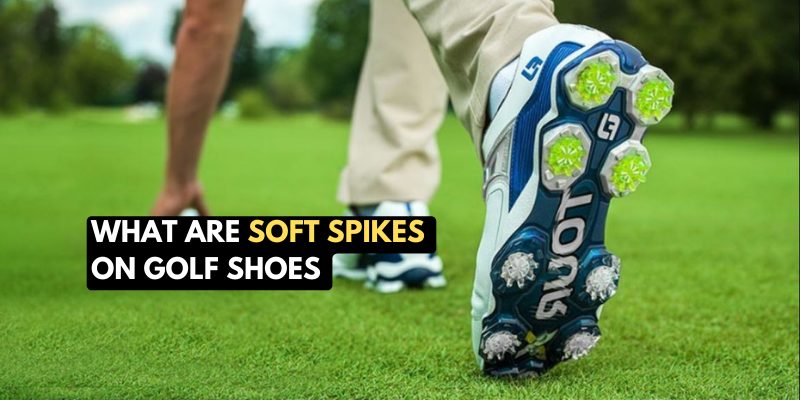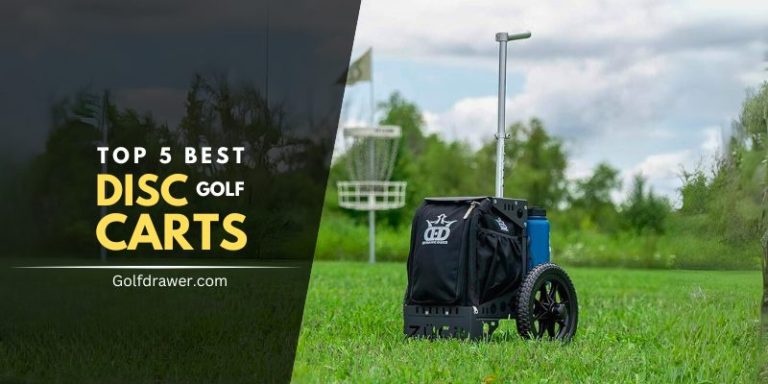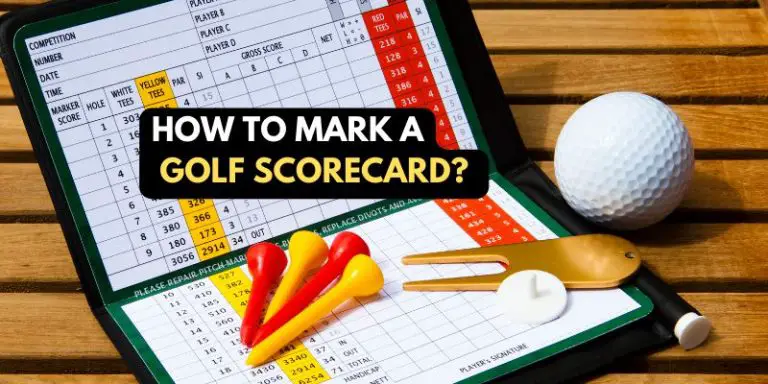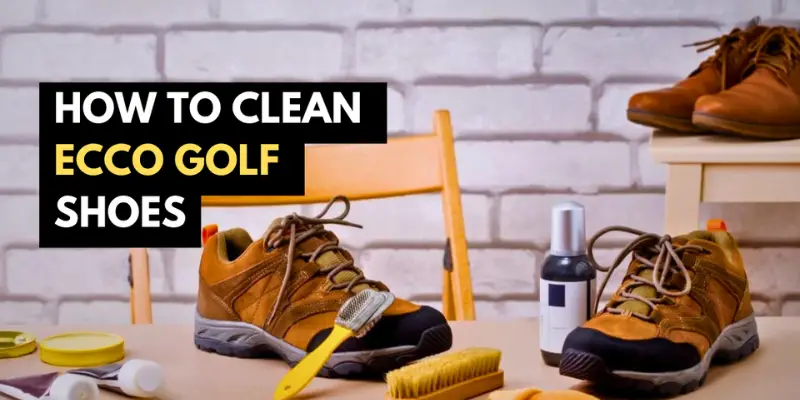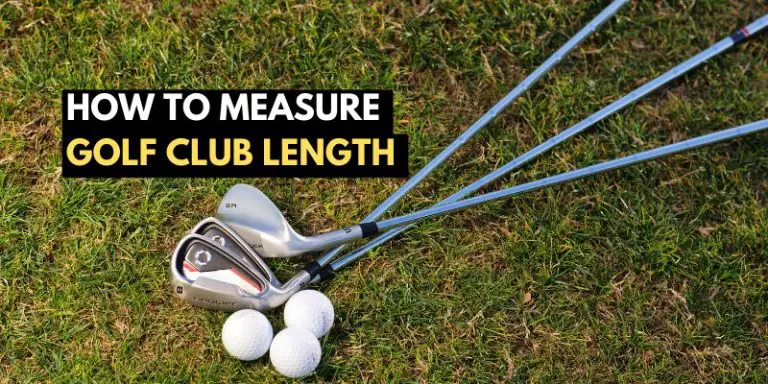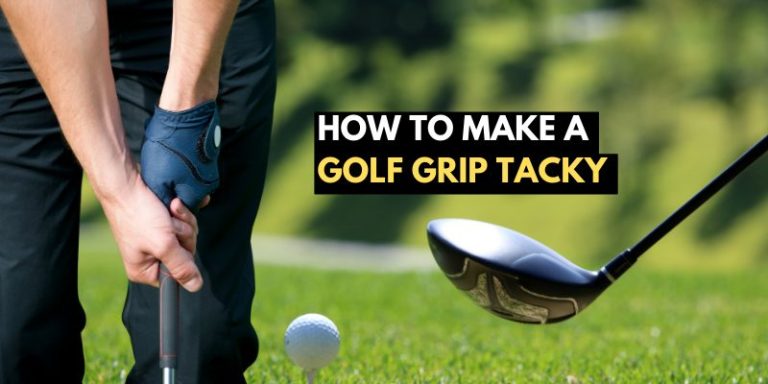What Are Soft Spikes on Golf Shoes?
Welcome to our comprehensive guide: “What Are Soft Spikes on Golf Shoes.” Golf enthusiasts and novices alike often wonder about the latest advancements that enhance their performance on the green. Soft spikes have emerged as a game-changing technology, reshaping the golfing landscape.
In this blog post, we will unravel the mysteries behind soft spikes on golf shoes, exploring their composition, benefits, and the reasons they have become a cornerstone of modern golf footwear. Whether you’re a seasoned golfer or a beginner looking to improve your game, understanding the significance of soft spikes is crucial.
Join us on this journey as we delve into the world of golf shoe innovation and discover why soft spikes are a vital component for every golfer striving for excellence on the course.
The Importance of Spikes
In golf one crucial component that often gets overlooked is the spikes. These small but mighty additions play a significant role in ensuring stability and traction on the golf course. Without them, you might find yourself slipping and sliding during your swing or struggling to maintain balance on uneven terrain.
The importance of spikes cannot be overstated. They provide the necessary grip to prevent your feet from sliding during your swing, allowing for better control and accuracy in each shot. Whether you’re playing on wet grass or navigating hilly fairways, having reliable spikes can make a world of difference in your performance.
Types of Spikes: Metal vs Soft
There are two main types of spikes: metal and soft. Metal spikes were once popular due to their superior durability and traction. However, most golf courses have now banned them due to their potential damage to greens. This has led many players to switch over to soft spikes.
Metal Spikes
Metal spikes were once the standard choice for many golfers due to their excellent grip on all types of terrain. However, over time, they fell out of favor because they can damage the greens and clubhouse floors. This led to the rise in popularity of soft spikes.
Soft Spikes
Soft spikes are made from rubber or plastic materials and offer several advantages over their metal counterparts. They provide sufficient traction without causing any harm to the turf or flooring. Additionally, soft spikes are more comfortable to walk in as they absorb shock better than metal ones.
Moreover, many golf courses now require players to wear shoes with non-metal spikes only as part of their maintenance efforts. Soft spike technology has evolved significantly over the years, resulting in improved durability and performance.
Despite these benefits, there are some drawbacks associated with soft spikes. They tend to wear down faster compared to metal ones and may need replacement more frequently. Additionally, if you frequently play on wet or hilly courses where additional grip is required, metal spikes might be a better option.
To choose the right type of spike for your golf shoes, consider factors such as your playing style, course conditions you typically encounter, and any rules set by specific courses you frequent.
Maintaining soft spikes is relatively easy but essential for prolonging their lifespan. Regularly cleaning them after each round will remove dirt and debris that could hinder their effectiveness on future rounds.
Understanding different types of golf shoe spikes is vital when it comes to optimizing your performance on the course while maintaining its condition – hence why “what are soft spikes on golf shoes” becomes an important question every golfer should explore.
What are Soft Spikes?
Soft spikes are an essential component of golf shoes that every golfer should be familiar with. But what exactly are soft spikes? Soft spikes are small rubber or plastic cleats that attach to the sole of golf shoes, providing traction and stability on the course.
Unlike their metal counterparts, soft spikes are designed to minimize damage to the greens while still offering excellent grip. They feature a series of small nodes or prongs that help distribute weight evenly and prevent slipping during swings or walks on wet grass.
One advantage of soft spikes is their versatility. They can be used on various types of terrain, including firm fairways and soggy roughs. Additionally, they provide enough grip without digging into the ground excessively like metal spikes, making them more comfortable for walking long distances.
It’s important to note that soft spikes do wear down over time due to frequent use. To maintain optimal performance, it’s recommended to regularly inspect your soft spikes for signs of wear and replace them as needed.
Choosing the right type of spike for your golf shoes will depend on personal preference and playing conditions. Many golfers prefer soft spike options because they offer a good balance between traction and green-friendliness.
Understanding what soft spikes are is crucial for any golfer looking to improve their game while preserving the condition of the course itself. With proper maintenance and selection based on individual needs, these lightweight yet durable attachments can make a significant difference in overall performance on the links.
Advantages and Disadvantages of Soft Spikes
Soft spikes have become increasingly popular among golfers due to their numerous advantages. One of the main benefits is that they provide excellent traction on the course, especially in wet conditions. Unlike metal spikes, soft spikes are designed to grip the ground without damaging it, making them more environmentally friendly.
Another advantage of soft spikes is their versatility. They can be easily replaced or changed depending on the specific needs of the golfer or playing conditions. This allows golfers to customize their footwear for optimal performance.
Soft spikes also offer superior comfort compared to metal spikes. The flexible material used in soft spike construction provides cushioning and shock absorption, reducing discomfort and fatigue during long rounds of play.
On the other hand, one potential disadvantage of soft spikes is that they may not provide as much stability as metal spikes, particularly on hilly or uneven terrain. Golfers who prefer a firmer footing might find metal spikes more suitable for their needs.
Additionally, because soft spike technology is constantly evolving, some golf courses may still have restrictions on wearing them. It’s important for golfers to check with each course’s regulations before deciding whether to use soft or metal spiked shoes.
While there are both advantages and disadvantages associated with using soft spikes on your golf shoes, many players find that they offer improved traction, comfort and versatility compared to traditional metal alternatives. Choosing between soft and metal spiked shoes will depend on personal preference and playing style.
How to Choose the Right Spikes for Your Golf Shoes
When it comes to choosing the right spikes for your golf shoes, there are a few key factors to consider. First and foremost, you’ll want to think about the type of course you typically play on. If you primarily play on softer or wetter courses, then soft spikes may be your best bet. These flexible rubber spikes provide superior traction and help prevent damage to the greens.
Next, consider the design of the spike itself. Look for options that have multiple prongs or channels as this can further enhance stability and grip during your swing. Additionally, pay attention to the material of the spike. Some soft spikes are made from durable materials like thermoplastic elastomers (TPE), which offer long-lasting performance.
Another important consideration is ease of installation. Some soft spikes have a quick-release system that allows for easy replacement when needed.
Take into account any specific preferences or requirements you may have regarding comfort and fit. Different brands offer different levels of cushioning and support in their shoe designs.
Tips for Maintaining Soft Spikes
Properly maintaining your soft spikes is essential to ensure optimal performance on the golf course. Here are a few tips to help you keep your soft spikes in top condition:
1. Clean them regularly: After each round of golf, take a moment to clean your soft spikes. Use a small brush or toothbrush to remove any dirt or debris that may have accumulated during play.
2. Avoid walking on hard surfaces: While soft spikes are designed for traction on the golf course, they can wear down quickly when used on hard surfaces like concrete or asphalt. Whenever possible, avoid walking on these surfaces while wearing your golf shoes.
3. Replace worn-out spikes: Over time, the traction provided by your soft spikes will diminish as they wear down. It’s important to regularly check their condition and replace any that show signs of excessive wear.
4. Store them properly: When you’re not using your golf shoes, store them in a cool and dry place away from direct sunlight. This will help prevent deterioration of the materials and extend the lifespan of your soft spikes.
By following these simple maintenance tips, you can prolong the life of your soft spikes and ensure they continue providing optimal traction on the golf course for many rounds to come!
Conclusion
Soft spikes are a game-changer when it comes to golf shoes. They provide the much-needed traction and stability on the course, allowing golfers to perform their best without worrying about slipping or losing balance. Whether you’re playing on wet grass or dry terrain, soft spikes offer an optimal grip that can significantly improve your overall performance.
In this article, we explored the importance of spikes in golf shoes and discussed the difference between metal and soft spikes. We learned that while metal spikes were once popular for their durability and superior traction, they have been largely replaced by soft spikes due to their many advantages.
Soft spikes are made from durable rubber or plastic materials that offer excellent grip without damaging the greens. They provide better traction while walking on different terrains and also enhance stability during swings. Additionally, these spikes are easy to replace and maintain compared to metal ones.
FAQs
What does soft spikes only mean in golf?
Soft spikes in golf refer to the type of traction system used on golf shoes. Unlike traditional metal spikes, soft spikes are made of rubber or plastic, providing grip and stability without damaging the golf course. They are designed to be gentle on the greens, minimizing impact and turf wear.
What are soft golf shoes?
Soft golf shoes typically refer to golf footwear equipped with soft spikes. These shoes feature rubber or plastic protrusions on the sole, enhancing grip on the course. Soft golf shoes are comfortable to wear and offer excellent traction without the discomfort associated with traditional metal spikes.
Is it better to have spiked or spikeless golf shoes?
The choice between spiked and spikeless golf shoes depends on personal preference and playing conditions. Spiked golf shoes, including those with soft spikes, offer superior traction, especially in wet or hilly terrains. Spikeless golf shoes, on the other hand, provide versatility and can be worn on and off the course. Golfers who prioritize stability often opt for spiked shoes, while those seeking all-around footwear may prefer spikeless options.
What is the purpose of spikes on golf shoes?
Spikes on golf shoes serve the primary purpose of enhancing traction and stability while playing golf. They grip the ground, especially during swings and walks, preventing slipping and ensuring proper weight transfer. Spikes, including soft ones, are essential for maintaining balance, improving grip, and enabling precise movements, thereby enhancing a golfer’s overall performance on the course.
